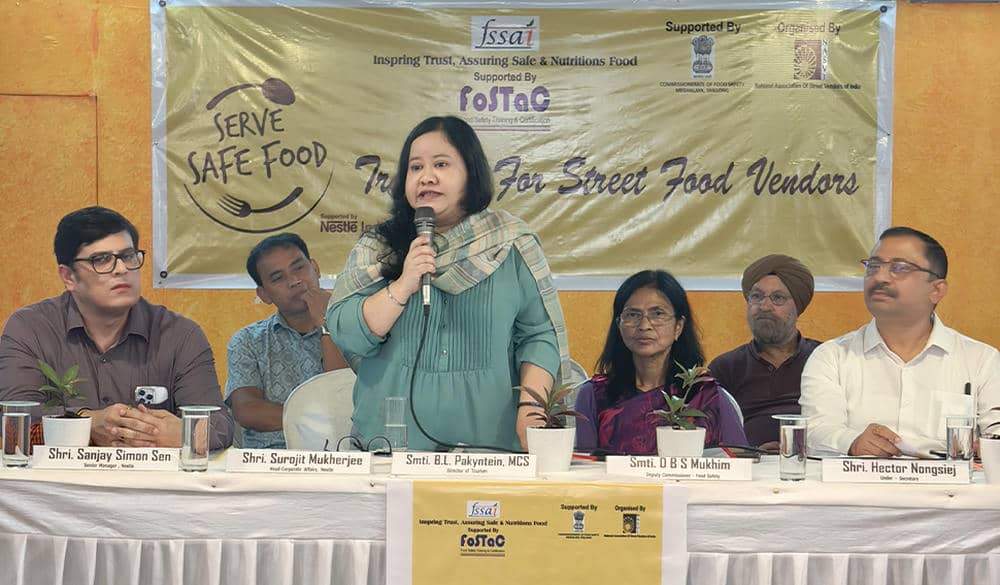Project ‘Serve Safe Food’ expands in Meghalaya: Over 300 street vendors in East Khasi Hills to receive training

Project ‘Serve Safe Food’, an initiative aimed at improving food safety and hygiene among street food vendors, has expanded its reach in Meghalaya. Nestlé India, in collaboration with the Food and Drug Administration, Meghalaya, and the National Association of Street Vendors of India (NASVI), will now train more than 300 street food vendors in East Khasi Hills, taking the total number of beneficiaries in the state to over 1,800 vendors.
Launched in 2016, Project Serve Safe Food has so far trained over 92,800 street food vendors across 26 states and 4 Union Territories, focusing on hygiene, safe food handling, waste disposal, and entrepreneurship. The programme aims to empower vendors with practical knowledge to ensure safe, high-quality food while also supporting the sustainability of their businesses.
Speaking on the expansion, DBS Mukhim, Deputy Commissioner (Enforcement), Food Safety, Government of Meghalaya, said, “From the breathtaking waterfalls and caves to the vibrant culture of its people, Meghalaya is fast becoming a traveller’s paradise. Our street food is a key part of this culture, and strengthening it through safe food practices is crucial. I am grateful for the collaboration with NASVI and Nestlé India, which is helping us achieve this objective.”
Dr. Taruna Saxena, Head of Sustainability and Societal Initiatives at Nestlé India, added, “At Nestlé India, we are consistently trying to improve the food safety environment beyond our own products. Project Serve Safe Food empowers street food vendors by upgrading their skills with relevant training on hygiene and food safety practices. Over time, we believe this will create positive behavioural change and contribute to the overall growth of their businesses.”
Since its inception, the project has covered states including Assam, Arunachal Pradesh, Bihar, Chhattisgarh, Goa, Gujarat, Karnataka, Kerala, Maharashtra, Odisha, Punjab, Tamil Nadu, Telangana, Uttar Pradesh, Uttarakhand, and several others. By focusing on grassroots vendors, Project Serve Safe Food bridges the gap between tradition and safety, ensuring that India’s rich street food culture remains both vibrant and secure for locals and tourists alike.




Leave a Reply